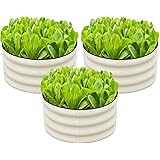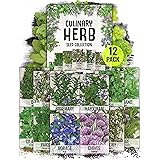SnugNiture 3 Pcs 2x2x1ft Round Galvanized Raised Garden Bed Kit Outdoor, Metal Planter Box for Planting Plants Vegetables, White
$59.99 (as of 14:01 GMT -05:00 - More infoProduct prices and availability are accurate as of the date/time indicated and are subject to change. Any price and availability information displayed on [relevant Amazon Site(s), as applicable] at the time of purchase will apply to the purchase of this product.)Maple99 Raised Garden Bed with Legs 72x23x30 - Natural Cedar Wood Elevated Planter Box, Veggies, Herbs - 300lb Capacity - Natural
10% OffIt’s Fall again, so it’s time to think about what we will do with our leaves. If you are serious about your gardening, you should certainly consider composting your leaves.
Composting leaves is very valuable in managing your compost plan. It often happens that leaves are left scattered all over a yard even while a compost pile sits nearby, sorely needing the absorption, the carbon, and other nutrients that leaves can provide. Following are some of the benefits of composting leaves.
1. Odor control
Dry leaves are a great means of suppressing the smell that may, otherwise, emanate from a compost heap. After you add fresh kitchen scraps to your pile, it would be a good idea not only to mix them into the heap, but to cover it with dry leaves as well.
2. Vermin control
Leaves, when used to cover a freshly supplemented pile of manure or food scraps, are great for preventing flies from infesting your yard. Pile on a two-inch layer of leaves to throw off the scent of the rats and vermin that may be attracted to your compost heap. Composting leaves may be what separates a neat garden from one ruined by all sorts of pests.
3. Carbon-rich source
Composting leaves can give your pile a rich source of carbon. Carbon, along with nitrogen, oxygen, and water does a lot to hasten the decomposition of a compost heap. When you need more green matter to balance you pile and serve as a much-needed catalyst, leaves provide a ready source for you.
4. Absorptive quality
On the other hand, during wet or humid weather when your compost pile tends to retain too much water, the absorptive quality of dry leaves can do a lot to remedy the situation. While water aids decomposition, too much of it will serve as a retardant as well.
5. Managing yard waste
Many yards in America produce more yard waste than they know what to do with – and most of this consists of fallen leaves. Rather than waiting for curbside pickup to take the problem off your hands, composting leaves can turn the problem into a benefit.
6. Cost-efficiency
There is really no reason to throw away something that you can use to improve the production of, say, your vegetable garden. Composting leaves can even mean substantial savings off your fertilizer budget.
7. Yard aesthetics
One of the most unattractive things about gardens is the overwhelming amount of leaves that covers it in the fall. A few leaves can be picturesque. But when it covers your entire lawn, pond or pool, plant nursery or vegetable garden, it can be a real aesthetic problem. Composting leaves is a great solution for a messy yard.
Related Content
- Winnipeg composting pilot diverts 440K kg of food waste from landfill after 1 year … – Global News
- New Food Scrap Composting at Select Fairfax County Farmers Markets
- Find Your Green Thumb With These Great Tips On Gardening
- New Hanover County Arboretum is accepting pumpkins for composting – Wilmington Star-News
- California pushes composting to lower food waste emissions | National | wtva.com













































